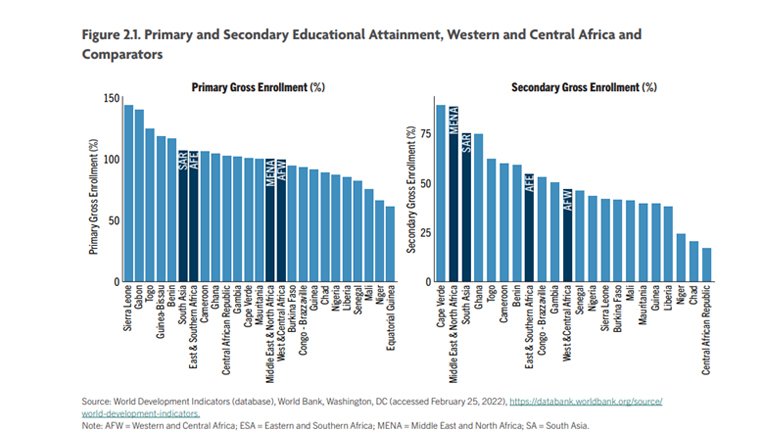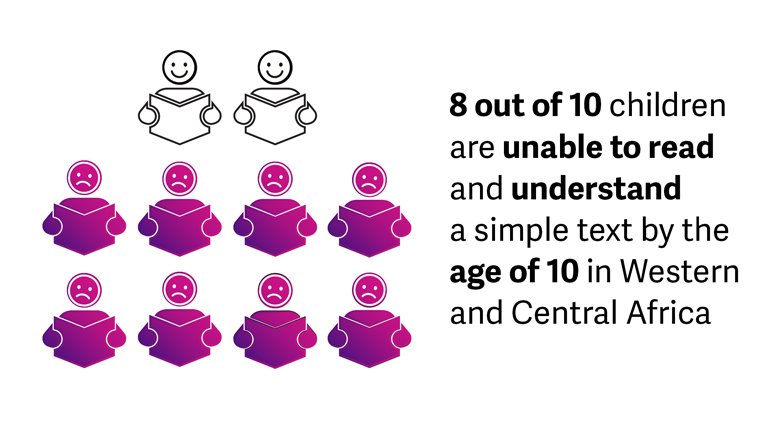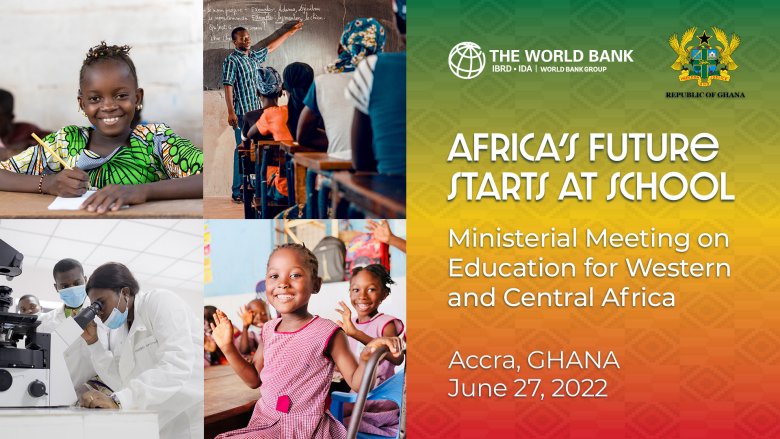Washington, January 20, 2023 - Success for young girls in West and Central Africa like in the story of Ama starts in primary school where good teachers and good conditions can help them focus on learning. Providing training and resources for teachers, having regular learning assessments, but also good roads to facilitate school transport, clean water and toilets at school, and school feeding programs are proven interventions to help improve learning outcomes.
As the World celebrates International Education Day, investing in young people and making education a priority matter more than ever. Here are seven key lessons from Western and Central African countries from the regional education strategy to help girls and boys get ready to learn, acquire real knowledge, and enter the job market with the right skills to become productive and fulfilled citizens:
1 - Recognize previous gains
While the COVID-19 pandemic has exacerbated the education crisis in the region and millions of children could not go to school or access distance learning, significant efforts have been made in educating young African girls and boys over the last decades. But there is more to do to further advance education reforms.
��With close to universal access in the primary cycle, the progress made is dazzling. However, we should not lose sight of the fact that this success is relative, as it is more quantitative than qualitative. There still is a long way to go,�� says World Bank Regional Vice-President for Western and Central Africa Ousmane Diagana.
2 �C Transforming Education = Addressing Learning Poverty
Despite progress, 8 out of 10 children in Western and Central Africa are unable to read and understand a simple text by the age of 10, and more than 32 million children remain out of school - the largest share of all regions worldwide. Weak foundations in childhood continue into adulthood: heavy school drop-out, limited social advancement, and a low-qualified workforce are the consequences of learning poverty. Transforming education means the government taking action to end learning poverty
3 - Leadership for impact: Countries learn from their own experiences

Tackling the learning crisis requires strong leadership, better implementation, and more investments in high-impact interventions, including a whole-of-society and government approach. Governments can learn from such interventions, expand, and adapt them to local contexts.
In Chad, a mobile payment system for the remuneration of community teachers improved their attendance record, while enhancing their commitment. In Mauritania, the establishment of school management committees increased parent involvement. Mali increased secondary school enrollment 2.5 times since 2000 thanks to a dynamic public-private partnership model. During the COVID-19 pandemic, Sierra Leone offered free lessons through radio, television, phones, and online. In Senegal, the Improving Quality and Equity of Basic Education project has helped Koranic schools, or daaras, provide foundational skills to pupils. In addition, the Africa Higher Education Centers of Excellence project is training post-graduate students and scaling up research capacity and regional collaboration in science, technology, engineering, and mathematics, or STEM, to address the widespread skills shortages.
These examples show that countries can take action and turn this learning crisis into an opportunity for building a better future.
4 �C For the Sahel region, education offers a path to peace, and equitable and inclusive growth.





